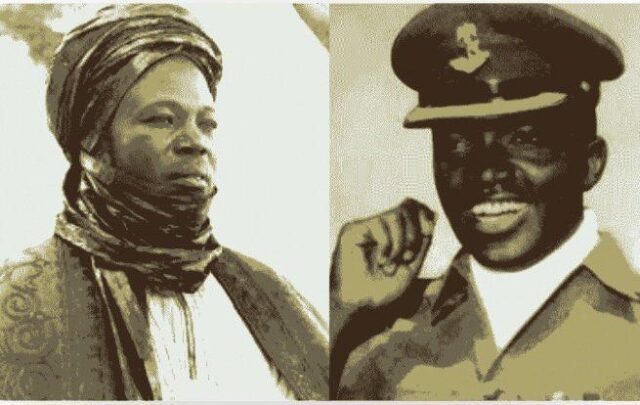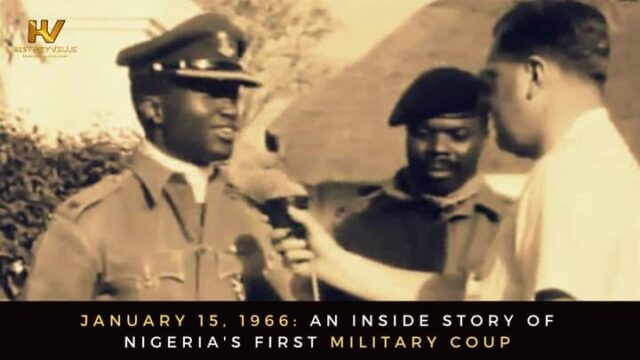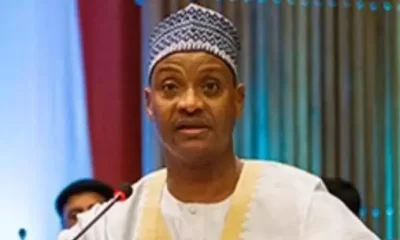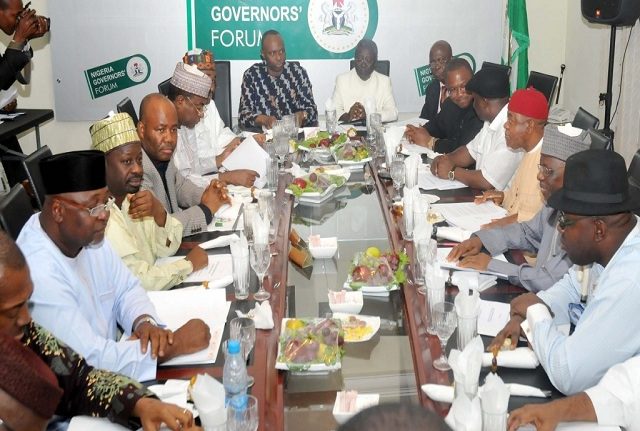Forgotten Dairies
The Coup Of January 15 1966 And The Facts Of History (Part 1) -By Henry Chukwuemeka Onyema
Military experts have since floored the argument because his position did not make him a custodian of the armoury. Interestingly, extracts of the Police Special Branch report on the investigation of the coup excluded Unegbe’s name from the casualty list. As for Igbo politicians the fact that President Azikiwe was outside Nigeria when the coup occurred is suspicious. Major Ifeajuna is from Onitsha, Azikiwe’s hometown.

It has become my personal historical exercise to do some reflection every January 15 for the past decade or so. Occasionally I write an article on the first military coup in Nigeria or aspects of the Nigerian condition in relation to the coup. This year, I did not plan on writing anything until I read Chief Femi Fani Kayode’s essay titled ‘History, the coup of January 15 1966 and a tribute to our heroes past’ published in ‘Sunday Vanguard’ of 21 January.
The erudite former Minister of Aviation made an eloquent and compelling case for the restoration of the study of History to our society, for the subject to be given its pride of place in our supposedly techno savvy society that basks in ignorance, misinformation and darkness because it disregards the study of its past. I agree with his submission that our lack of historical knowledge makes us, Nigerians, ‘a conflicted and confused people who have no idea where we are coming from, where we are today or where we are going tomorrow.’

No matter the flaws of the Buhari administration, anyone who understands the significance of History to the well being of the human being will commend it for reintroducing History as a compulsory, stand alone subject in basic school (junior secondary school) in 2018, more than 13 years after it was dropped from the core curriculum and relegated to a highly unpopular elective arts subject in senior school. To the best of my knowledge, only Lagos State has followed the praiseworthy steps of the federal government so that the process of the mental emancipation of our people can begin by teaching them our history.
The implication of this laudable restoration of the mother of all disciplines to our education system is that our children and young people deserve to know the facts about our history. Even those ugly facts about our past. Nigeria’s history, especially in the post independence era, is not a dish for weak stomachs. But then Nigeria is not unique in this regard. Every nation on the face of the earth has historical warts. Do we go the Soviet era way and suppress these realities till they implode in our faces? My project supervisor at university was fond of saying ’History exposes the dirty old man.’
Chief Fani Kayode addressed the first military coup in relation to the significance of Nigeria’s Armed Forces Remembrance Day. January 15 1966 remains a day successive generations of Nigerians wrestle with; a spectre we do not know how to exorcise. It was also on 15 January 1970 that the Nigerian civil war ended. We set aside 15 January to honour all who died, who bled, and still bleed, for Nigeria. But the two monumental events that gave rise to the Remembrance Day still hold us in their iron grip.
The chief magisterially asserted that the January 15 coup was an Igbo coup. In his words ‘the allegation that it was an Igbo coup is accurate and factual regardless of all attempts to revise and rewrite history, often by the murderers and mutineers themselves in a futile effort to make it look otherwise and portray themselves as patriots and heroes….the assertion that it was not an Igbo coup is patently false and we owe it to those that lost their lives that terrible night to at least speak the truth about what happened and who killed them.’
The word ‘history’ evolved from the Greek term ‘historia’ which means ‘inquiry, the act of seeking knowledge, as well as the knowledge that result from inquiry.’ I ask, from where did Chief Fani Kayode get the knowledge that made him declare the January 1966 coup was an Igbo plot? As a lawyer he knows that one who asserts must prove. History is all about facts, though interpretation of facts may vary.

Our sources of historical information matter a lot in reconstructing the past. Just as faulty building materials can lead to the collapse of a building or creation of a shaky foundation, so do wonky sources lead to wonky history. Most sources of history, whether primary, secondary or tertiary, rarely lack bias. So the historian has the duty of cross-examining a plethora of sources on the subject of his interest and drawing conclusions that come near to the truth. The January 1966 coup is a relatively young historical event and myriads of sources exist. Did the chief interrogate them before labeling the plot an Igbo coup?
He wrote the coup was led by Majors Ifeajuna and Nzeogwu. Sir, his name is Chukwuma Nzeogwu, not Chukwuemeka Nzeogwu as you wrote. So what becomes of the Yoruba historian and army officer from Ode Remo in Ogun state, Major Adewale Ademoyega? No matter how much Chief Fani Kayode may ignore primary sources from the plotters, Ademoyega wrote that he, Nzeogwu and Ifeajuna were the infamous trio who conceived and organized the coup. Even when other officers were brought in, the trio remained the pivot of the putsch. In his book ‘Why We Struck’ Ademoyega declared that he formulated the principles of their coup with Nzeogwu.
Asserting that ninety percent of the officers involved in the coup were Igbo means that the former Aviation chieftain did a careful study of the ethnic background of the plotters. Facts are sacred. Perhaps if he had said ninety percent of the officers were Southern Nigerians, it would have been nearer the truth. There were three tiers of officers involved in the coup: the initiators who led the operation to its bitter end; then officers who were brought in as the plot evolved, at times on the night before the coup, and those subordinates who thought they were simply obeying legitimate orders of superiors.
Names like Captain Ganiyu Adeleke and Lieutenant Fola Oyewole who aided Ifeajuna in seizing Balewa and Lagos, and Second Lieutenant Olafimihan of the Artillery Corps, Kaduna, who was one of Nzeogwu’s arrowheads in Kaduna, are Yoruba. Caution must be exercised in concluding about the ethnicity of some of the plotters because of their Igbo sounding names. Examples were Lieutenants Egbikor and Azubuogor. Other prominent participants who were not Igbo were Second Lieutenants John Atom Kpera and Harris Otadafeuwerha Eghagha. In an interview shortly after the coup Nzeogwu stressed the multi ethnic spread of the troops who participated in his bloody assault on Sardauna Ahmadu Bello’s house.
The casualty pattern of the coup is one reason the assertion that it was an Igbo affair refuses to die. No Igbo politician was shot. Colonel Arthur C. Unegbe, the army quarter master, who was killed, has been a source of historical revisionism until recent times when such became ridiculous. Those bent on blaming the Igbo for the coup said the Colonel was from Delta; hence he is not an Igbo. But his hometown in Anambra is well known. The same group argued the plotters shot him because he refused to surrender the keys to the armoury.
Military experts have since floored the argument because his position did not make him a custodian of the armoury. Interestingly, extracts of the Police Special Branch report on the investigation of the coup excluded Unegbe’s name from the casualty list. As for Igbo politicians the fact that President Azikiwe was outside Nigeria when the coup occurred is suspicious. Major Ifeajuna is from Onitsha, Azikiwe’s hometown. Is there credible evidence that he tipped his kinsman off? As a historian I deal in facts and these are the facts available to me on this matter. Azikiwe left Nigeria quite a while before the coup on health grounds. Also, Ifeajuna was openly and almost brutally critical of Azikiwe’s political roles. Then President Makarios of Cyprus was in Enugu on a state visit to Premier Michael Okpara of the Eastern region at the time of the coup.
Lieutenant Oguchi, the linchpin of the plot in the East, could not afford going in with blazing guns in order not to create a diplomatic incident. In a September 2010 interview with ‘The Nation’ newspaper, late Matthew Mbu, one of Balewa’s closest Ministers, said that the soldiers nearly shot Okpara because he tried to be stubborn when they tried to arrest him after Makarios’ plane left. It took the intervention of the Eastern Regional governor, Dr. Francis Akanu Ibiam, to prevent bloodshed.
Okpara was subsequently arrested and detained.
TO BE CONTINUED.
Henry Chukwuemeka Onyema is a professional historian and author based in Lagos. His novella about the Nigerian civil war is titled ‘in Love and In War’ and was published in 2020. Email: henrykd2009@yahoo.com.
















